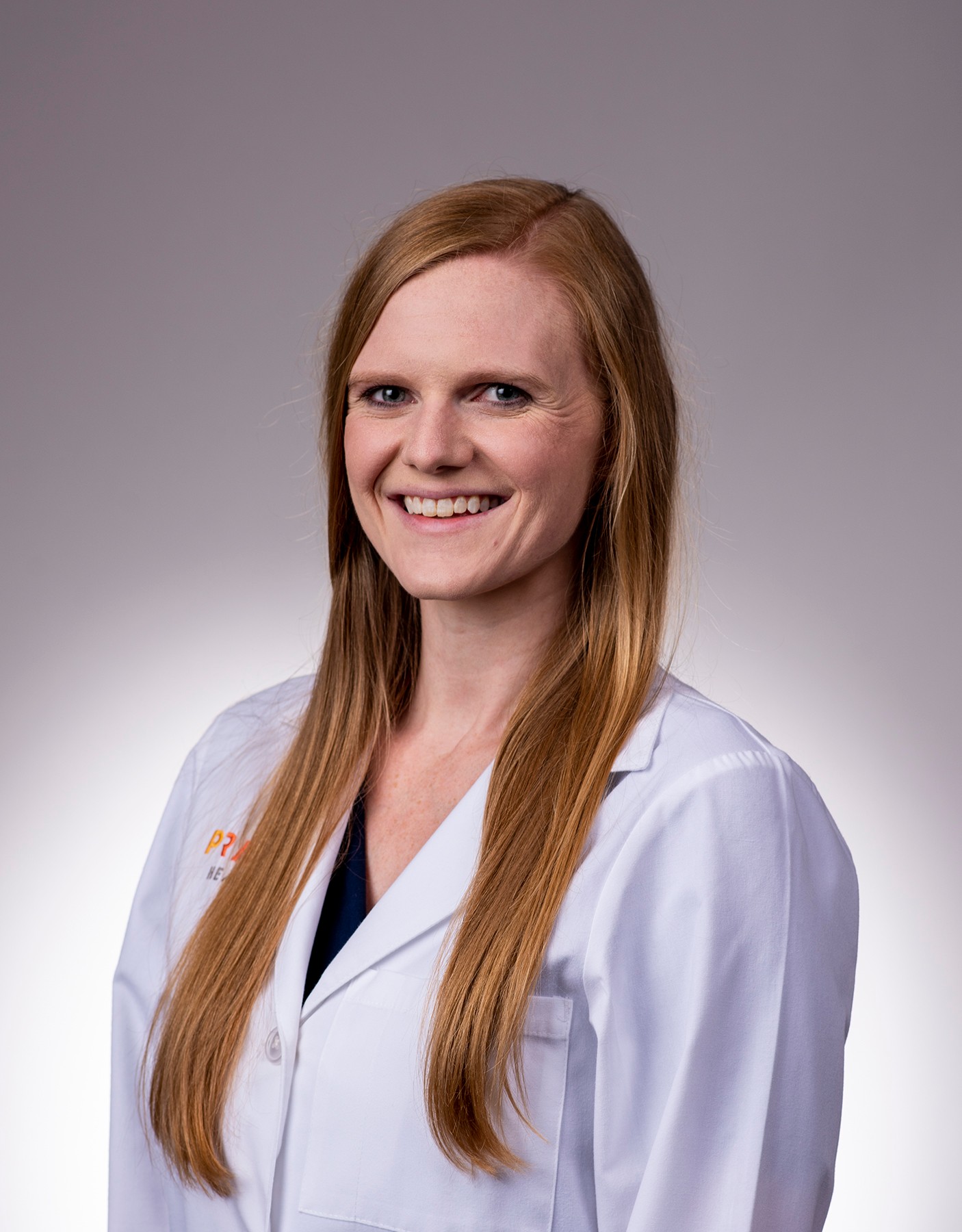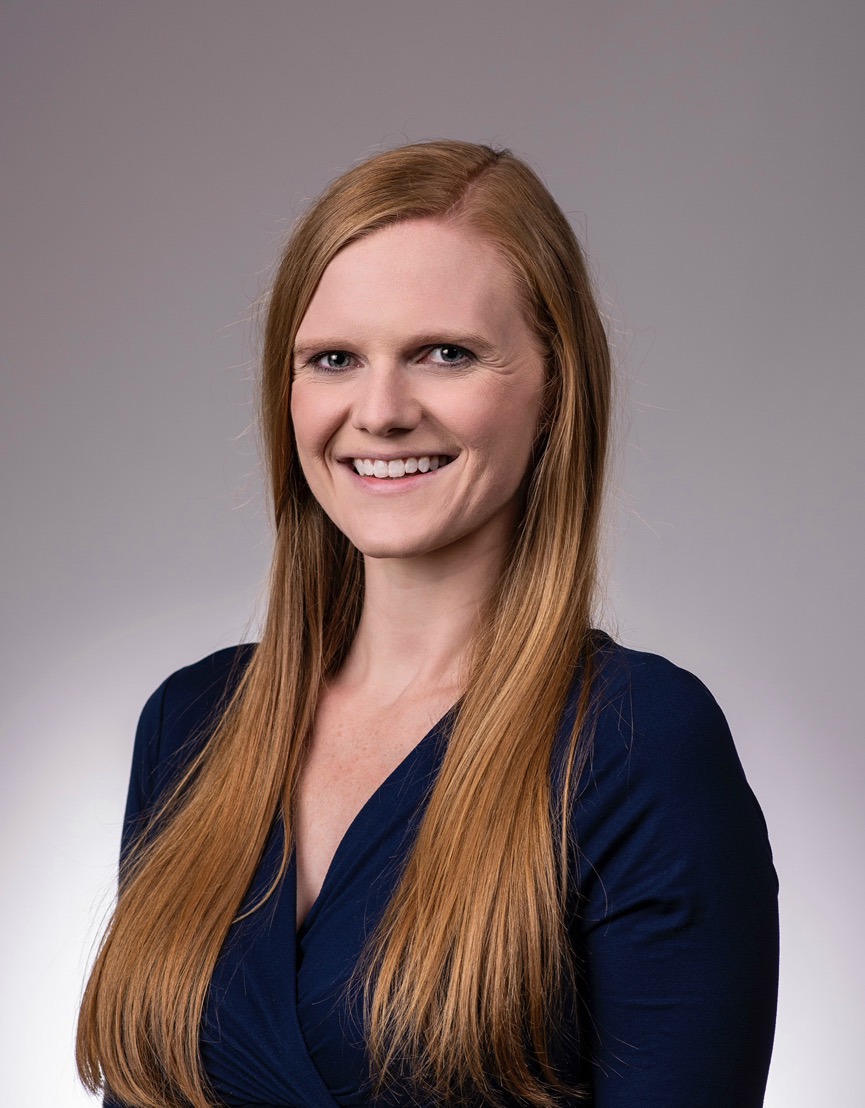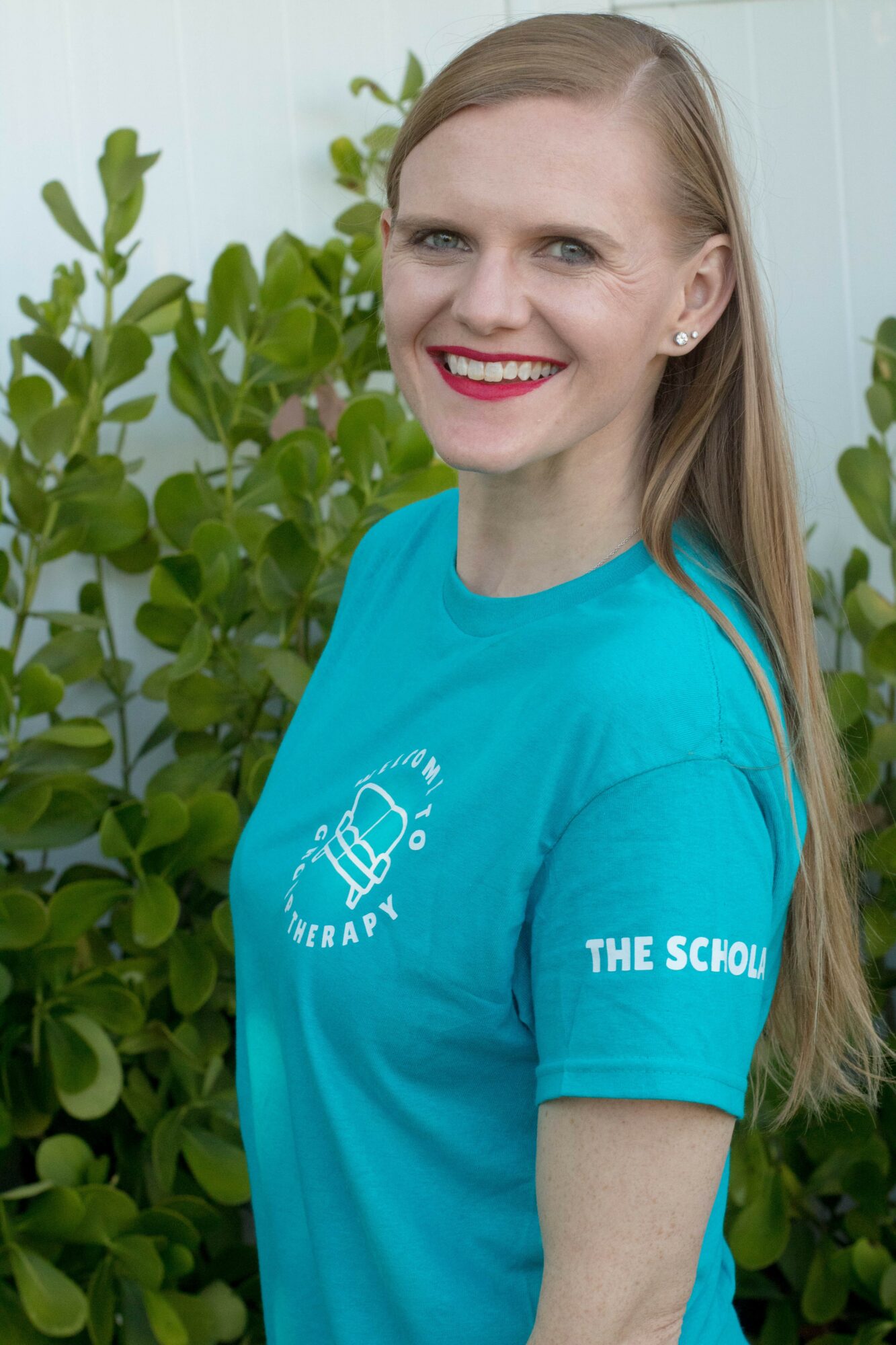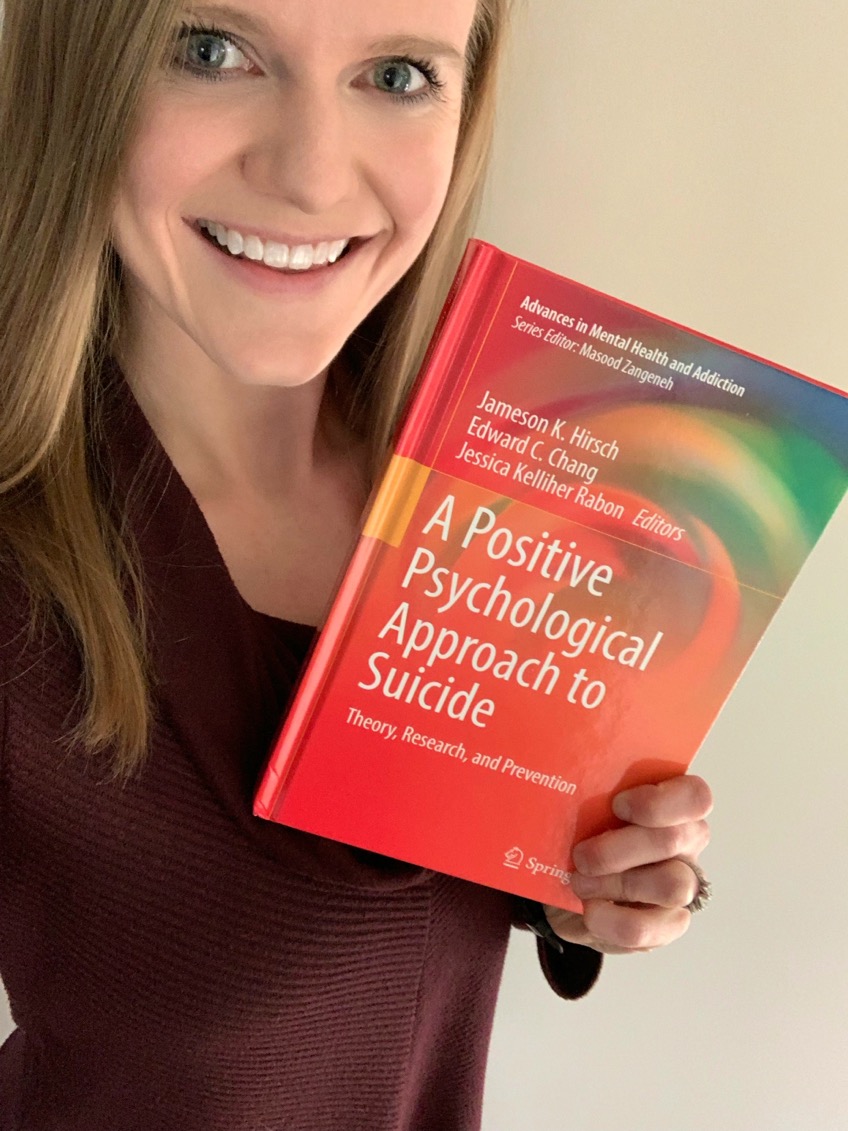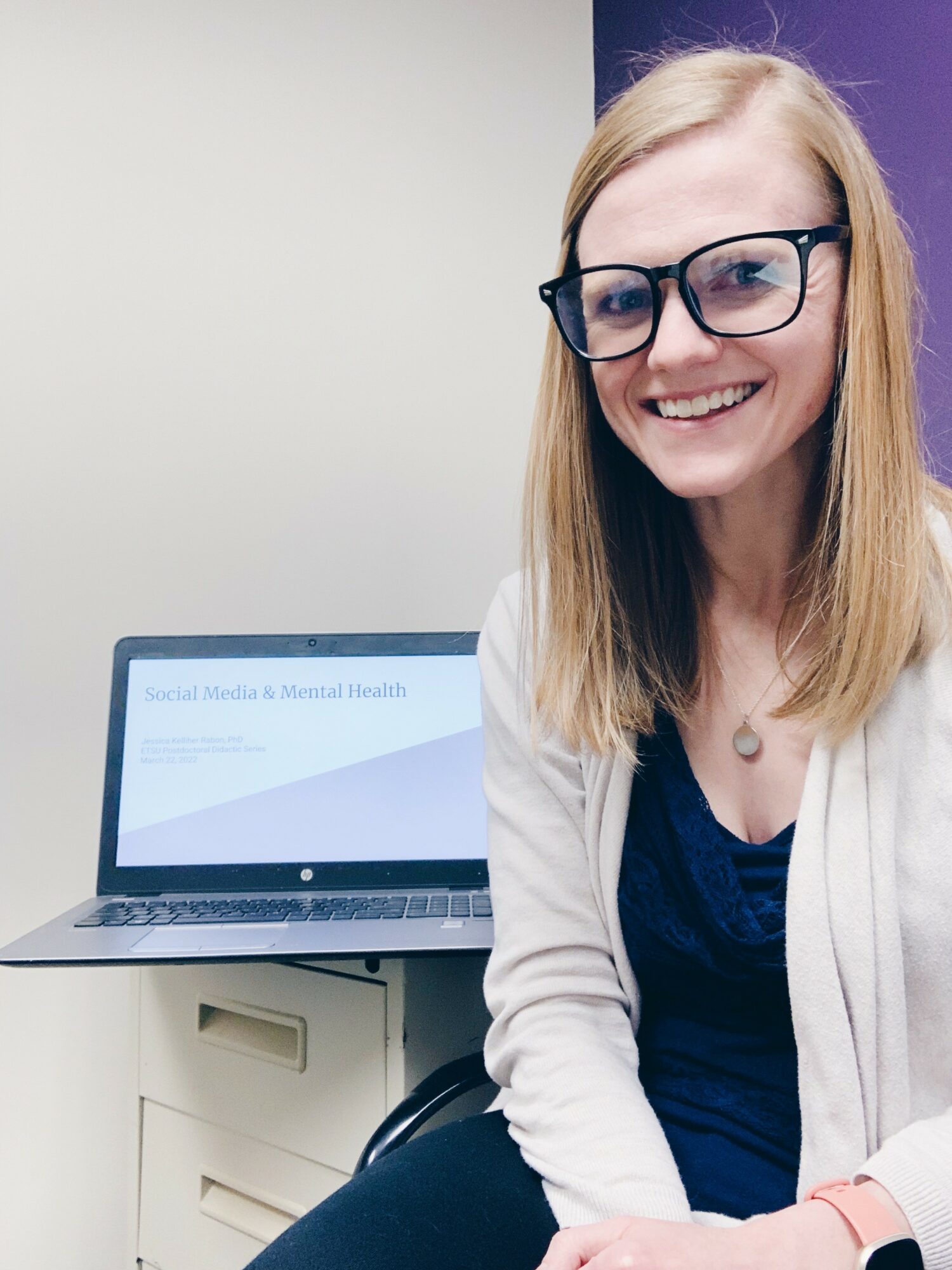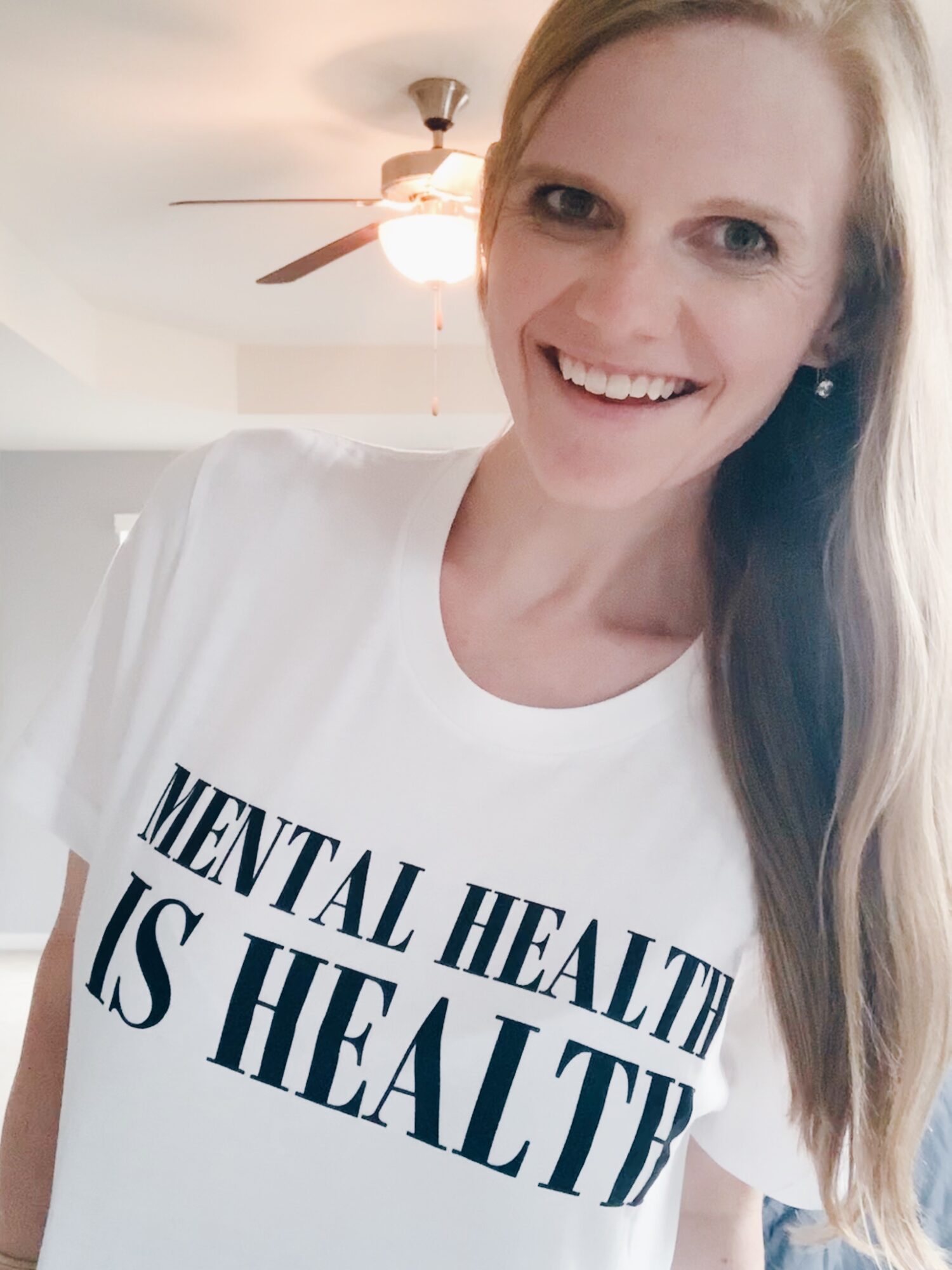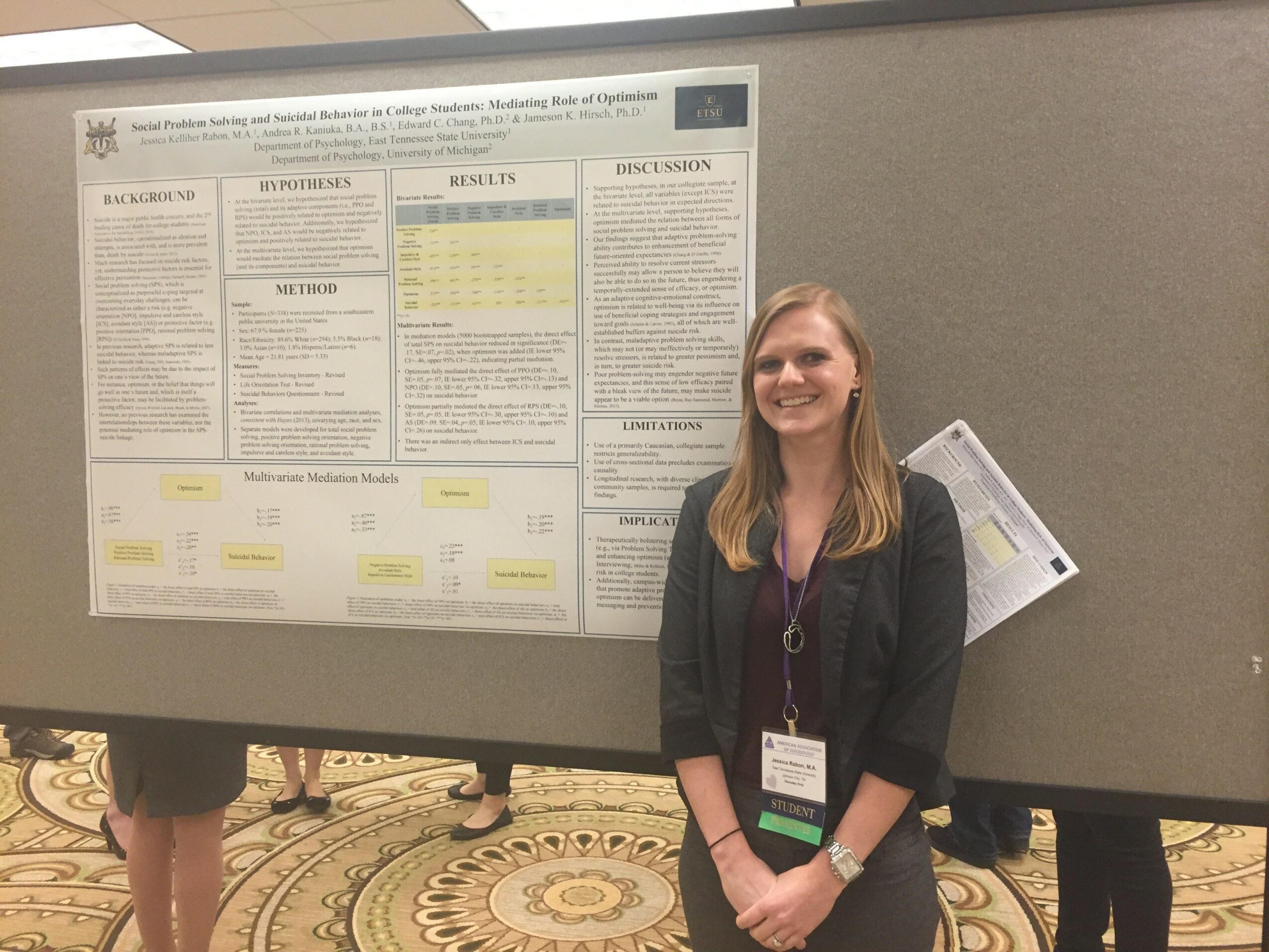

Today we’d like to introduce you to Jessica Rabon.
Hi Jessica, we’re thrilled to have a chance to learn your story today. So, before we get into specifics, maybe you can briefly walk us through how you got to where you are today?
Around age 12 I decided I wanted to be a chemistry major in college with plans to go to pharmacy school. I started undergrad as a chemistry major; however, in November of my first semester of college my cousin died by suicide. Although his death did not change my career path initially, his death led me to volunteer for a non-profit Mental Health America and work on their Crisis Line. During my sophomore year of college I took an Intro to Psychology course to fill required credits. It was the first time in college I was excited to get up and go to an 8 AM class. At the time I was struggling in my chemistry classes, did not feel the excitement I did for Psychology, and ultimately decided to switch my major from chemistry to psychology. After undergrad I went on to get my Master’s in Clinical Psychology and then my PhD in Clinical Psychology. Initially I wanted to go into academia, teaching and doing research, which is why I decided to pursue a PhD. As part of any Clinical Psychology program though you have to do clinical work. My program was generalist (meaning you worked across the lifespan) and also had an integrated primary care focus, meaning for at least one of our practicum experiences was in a medical setting. My first clinical rotation was working with children, which I absolutely fell in love with. I then went onto work in a Pediatric Office, which I thoroughly enjoyed as well. Although my initial plan was to go into academia and research, I fell in love with working with children and adolescents, specifically in an integrated medical setting. When I applied to internship (the last year of a clinical psychology doctorate program) I only applied to children’s hospitals around the U.S. There I gained more clinical experience which affirmed my decision to work with children and adolescents in a hospital setting. As I was completing my doctoral program, my husband and I decided we wanted to move back to South Carolina, where he is from and where we met in college. I applied to Fellowship at a children’s hospital in the Upstate, got the fellowship and a year later was hired on as a staff psychologist. For the past 6 years I have been splitting my time working medical inpatient and outpatient in our Adolescent Medicine Clinic, serving children, teens, and young adults with a variety of presenting issues including, but not limited to, medical disorders, anxiety, depression, eating disorders, trauma, and LGBTQ+ health.
In addition to my clinical work in a children’s hospital, I create mental health content on social media and host a mental health podcast. In 2020, during the pandemic, I realized that many people were struggling with their mental health but could not access the resources they needed. It was at this time I also noticed a rise in misinformation about mental health (and health in general) on social media. I started posting evidence-based information on social media to not only combat misinformation, but increase access to accurate mental health information to people who would not be able to access it otherwise and normalize conversations about mental health. As social media is short form content and does not allow for as much nuance as I would like, I started a podcast in May 2020 called Psych Talk, that provides longer form content on various mental health topics. Five years later, I continue to create mental health content online and host my podcast, as both give me a creative outlet to express my passion for mental health outside of the therapy room.
Alright, so let’s dig a little deeper into the story – has it been an easy path overall and if not, what were the challenges you’ve had to overcome?
I believe anyone who has a PhD would say the road to getting a doctorate is hardly “smooth”. There are a lot of long hours, late nights, and stress that come with getting a doctorate. However, with that being said, there were things about my journey that were definitely “smooth” compared to others. For example, since I got my staff psychologist position at the hospital I completed my fellowship, I did not have much stress about applying to jobs and getting interviews, I did not have to get used to a completely new system, or even new people.
When I look back on my journey and think about the struggles along the way, I would say many have to do with stress of getting a doctorate, as well as that being the primary focus of your life for those many years. You do have to sacrifice other areas of your life, including relationships not being the primary focus, finances, and other activities you may want to dedicate more time to.
As a psychologist now, it is also not always “smooth” but the challenges are different. Some of the main challenges I currently face are lack of resources for my clients, not being able change certain factors that are negatively impacting my clients, and challenges with insurance barriers to seeking care. However, I will confidently say the benefits of both my journey and practicing as a psychologist today, outweigh the struggles.
Thanks for sharing that. So, maybe next you can tell us a bit more about your work?
I work as a pediatric psychologist in a children’s hospital. I split my time between medical inpatient and outpatient in our Adolescent Medicine Clinic. Inpatient, I primarily work with children and teens who present with complex medical conditions, new diagnoses of medical conditions, traumas, and those hospitalized for medical stabilization of an eating disorder. Outpatient, I work with adolescents and young adults who are part of the LGBTQ+ community or are presenting with depression, anxiety, or eating disorders.
There are a lot of things I am proud of in my career – the ability to establish rapport with clients, the ability to create a safe space and trust that they will sit with me and share some of their most vulnerable and challenging moments, the fact that I have worked at the same hospital for 7 years and still wake up every day loving what I do. As an individual experience, I think the thing I am most proud of is when a client graduates from therapy with me because they no longer need me. Although it is bittersweet, knowing that I helped someone to the extent that they have the skills and tools to manage whatever initially brought them into therapy that they no longer need therapy anymore.
As for what sets me apart from others, admittedly it is difficult for me to talk positively about myself. I do believe I have a way of establishing rapport with patients quickly that is personable and allows them to feel comfortable opening up. I would also say I am very values, ethics, and research driven, which shows up both in the therapy room and outside with my advocacy work, whether that be on social media, contacting lawmakers to advocate for changes that directly impact my clients, or via lectures and presentations on topics that are important to me and my patients.
Outside of my clinical work in the hospital, I would say one thing that sets me apart from many psychologists is the social media and podcasting I do. Although there are many mental health content creators and podcasters out there, many are in private practice or have moved to those platforms full time. It has been rare to connect with another psychologist who works in a hospital and also spends time providing mental health information via social media and other platforms. The work I do outside of the therapy room has helped me connect with mental health professionals across the globe, learn from them, and better advocate for the needs of my clients.
Do you have any advice for those just starting out?
When I think of “starting out” my mind goes two places – those who are thinking about pursuing a career in psychology and are determining the educational path they want to go and those who have finished school and are starting out as an early career psychologist.
For those who are thinking about a career in psychology, I always ask individuals what their goals are and what they would like to do with their career. A lot of people say they want to go in to the field to “help people” but do not realize the range of opportunities the. mental health field has with regard to careers, as well as degrees. I encourage people to talk to individuals in the mental health field about their educational path, as well as the jobs they do. I often tell individuals if they are interested in doing therapy and have no desire to do research or psychological assessment, getting a master’s degree in a mental health field is enough and they do not need to pursue a doctorate. However, if their professional goals include research, academia, or psychological assessment, or the jobs they are interested in require a doctorate degree, that is when it is good to look into getting a doctorate. As for things I wish I knew when starting out, I wish someone was honest about how challenging it can be to get into a PhD program in Clinical Psychology.
For early career psychologists, I think my advice would be to still rely on supervision and consultation as much as you feel is necessary. Although I learned a lot in graduate school, I would say I have learned just as much, if not more, working as a licensed psychologist. I have found although the foundational knowledge and skills I gained in graduate school are applicable to the populations I work with, there is also a relational and human component that we are not necessarily taught about in school and that looks different in clinical practice. Something I wish I knew when I was starting out is that even though I have a lot of knowledge, there is a lot I still do not know, and that is okay. That is what supervision and consultation is for. It is also really good to take continuing education credits or attend lectures on topics you believe you are familiar with, as a refresher and to gain more knowledge or a different perspective than you may have had previously.
Contact Info:
- Website: https://jessicaleighphd.wixsite.com/mysite
- Instagram: https://www.instagram.com/jessicaleighphd/
- Facebook: https://www.facebook.com/jessicaleighphd/
- LinkedIn: https://www.linkedin.com/in/jessica-kelliher-rabon-607aa833/
- Youtube: https://www.youtube.com/@jessicaleighphd
- Other: https://www.tiktok.com/@jessicaleighphd
